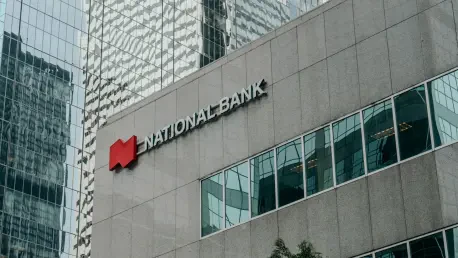Deregulation of the banking industry amid thriving economic conditions draws cautionary advice from Federal Reserve Governor Michael Barr. Understanding the fine line between unleashing growth and heightened risk, Barr’s insights spotlight historical lessons and potential ramifications if regulation is overly relaxed. The focus is on ensuring a sustainable financial ecosystem, unmarred by previous missteps.
Historical Echoes Reshape Modern Banking Outlook
The parallels between past and potential future financial crises loom large in Barr’s analysis. Historical deregulation episodes like the Great Depression and the financial crises of both the late 20th century and the landmark 2008 collapse highlight the lessons unlearned. These precedents serve as vital reminders of the inherent dangers tied to loosening banking controls. The industry’s past underscores the necessity for resilient structures, safeguarding against predictable economic devastations. These cautionary tales have informed Barr’s advice against deregulation in stable periods, which could breed vulnerabilities that manifest during less prosperous times. The regulatory frameworks of the past were dismantled at times of prosperity, which unfortunately set the stage for significant financial instability later.
Navigating the Contemporary Regulatory Landscape
Stress Testing: Protecting Against Future Financial Shocks
Current regulatory frameworks face the double challenge of innovation without losing sight of prudence. The debate centers now on stress testing and supervisory frameworks, critical for assessing banks’ capabilities to withstand economic downturns. Changes to these frameworks risk diminishing their effectiveness, argues Barr, potentially exposing the banking sector to unforeseen vulnerabilities. While innovation is inevitable, its coexistence with robust oversight remains paramount.
Balancing Economic Efficiency and Risk Prudence
Institutional changes in regulation often accompany shifts in political climates. Barr stresses the delicate act of balancing immediate economic gains against enduring financial risks. With new technologies and financial mechanisms constantly emerging, regulators face the challenge of encouraging growth while managing risk. The dual demands of promoting innovation and ensuring sound oversight complicate the regulatory environment, necessitating a nuanced approach in policy formulation.
Clarifying Regional Disparities and Misconceptions
The complexity of banking regulation is compounded by regional differences and varied market dynamics. Barr emphasizes the risks of misunderstanding regulatory impacts, which can lead to inconsistent applications across regions. The burgeoning field of disruptive financial technologies further necessitates adaptive regulatory strategies. This ongoing adjustment ensures that regulations are both comprehensive and applicable across differing situations.
Anticipating Trends and Innovations in Financial Regulation
Looking forward, technological innovations such as blockchain and artificial intelligence are poised to redefine banking regulation. The rise of digital currencies, coupled with changing geopolitical contexts, demands fresh perspectives from regulators. These emerging trends suggest a transformative period ahead, where regulatory adaptability will be tested. The path forward will likely involve redefining traditional frameworks to integrate these technological advancements seamlessly.
Strategic Insights and Policy Recommendations
In this intricate regulatory environment, key takeaways emerge for stakeholders. Remaining informed and strategically agile remains crucial for navigating current and future regulatory landscapes. Emphasizing robust risk management and strategic decision-making can help businesses and professionals align with regulatory expectations while capitalizing on industry shifts. By maintaining a focus on prudent risk strategies, industry players are better equipped to weather economic uncertainties.
Reflecting on Barr’s Insights and the Path Forward
Barr’s caution against banking deregulation resonates with a pivotal message: learning from past oversights is vital for economic resilience. Aggregating insights from this analysis underscores the importance of robust regulatory frameworks in sustaining financial stability. As the industry evolves, the legacy of vigilance in regulatory practices becomes ever more imperative. Long-term economic stability hinges on regulatory prudence, highlighting the need for balanced, informed policy decisions that transcend immediate gains.









